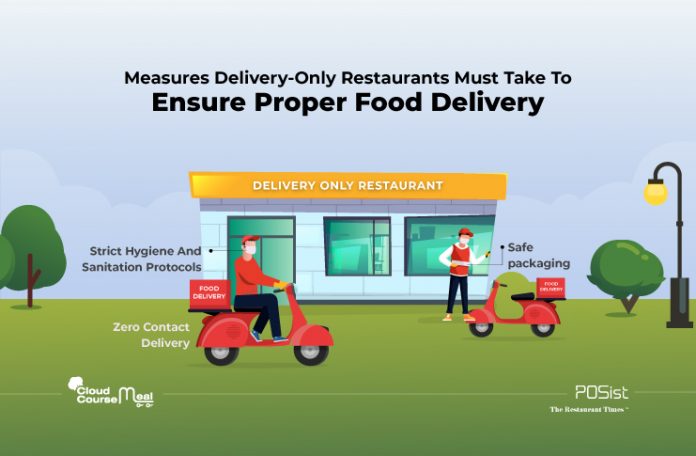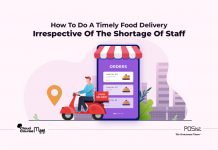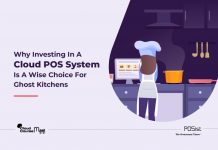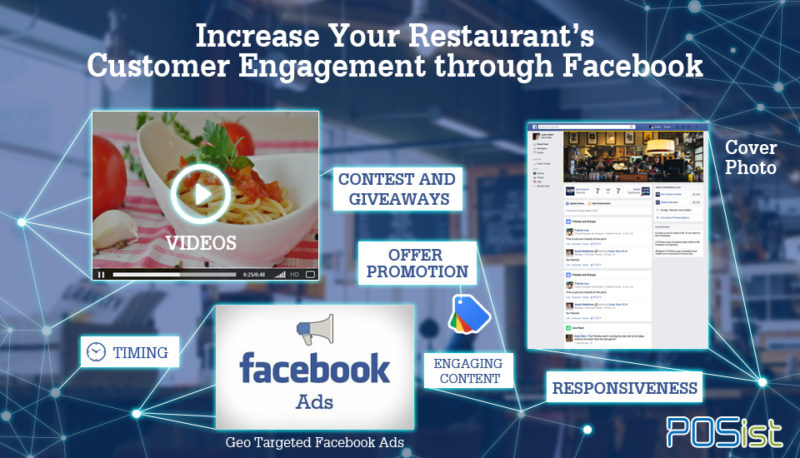Amidst the current lockdown, the restaurant industry has observed a spike in demand for delivery-only services. The growing popularity of online food delivery has enabled restaurant operators to pivot their operations to ghost kitchens. Existing ghost kitchen businesses are also adjusting their operational efficiency to fulfill the increased demand for proper food delivery. However, considering the risk of Covid-19 transmission, it is important that restaurants take all necessary precautions when delivering food to customers. In this article, we will discuss how ghost kitchens can make food delivery reliable and win the customer’s trust.
What Measures Can Delivery-Only Restaurant Take To Ensure Proper Food Delivery
Delivery-only services, particularly delivery-only restaurants, have sprung up as an alternative model that most foodservice operators depend on. Research says that revenue in the online delivery segment is expected to show an annual growth rate of 7.5%, by 2024. Despite the positive response to online food delivery services, it is quite evident that the recent turn of events has made consumers skeptical about ordering food online.
Customers are expressing concerns about the health of delivery partners, given their exposure to multiple people on a daily basis. To win the trust of customers regarding food delivery, online food aggregators Zomato and Swiggy are taking aggressive measures in ensuring proper hygiene and promoting contactless delivery.
Throughout the industry, delivery executives are practicing social distancing and following hygiene habits such as covering mouths with N95 masks and gloves, frequently washing hands, sanitizing the vehicles, etc. Customers are also being encouraged to transact through digital payments, thus eliminating the physical transfer of cash.
India’s largest cloud kitchen brand, Rebel Foods too, is taking precautionary measures to ensure that the entire process of food delivery is handled hygienically. The multi-brand cloud kitchen operator has introduced a live body temperature tracker on its app. This feature provides customers with a live feed of body temperature checks for all those handling their delivery orders.
In its Interim Guidance on Food Safety for Restaurant’s document, the WHO states that,
“Food Delivery Executives should be supplied with an alcohol-based hand sanitizer, a disinfectant, and paper towels. Even the food suppliers must use a hand sanitizer before passing the delivery documents to the restaurant staff. Food-delivery restaurants must encourage the use of disposable containers and packaging to avoid the need for cleaning of any returns. In the case of delivering food in the reusable containers, operators must implement appropriate hygiene and sanitation protocols.”
In addition to the above, these are some of the measures delivery-only restaurants must take into account to ensure proper food handling and delivery.
- Follow a strict hourly hand wash protocol for the entire kitchen staff. Provide them with protective gear and ask them to wear disposable gloves while working in the kitchen. Provide hand sanitizers and gloves to your delivery executives. Before handing over the delivery packages, ask the delivery person to wash or sanitize their hands.
- Even after the pandemic is over, make it a habit to disinfect the kitchen space, vehicles, packaging containers, and hot bags. Set up handwash stations at the food delivery pickup points to make sure delivery partners also practice safe hygiene.
- Encourage the use of safe packaging. Cover all the delivery orders adequately in an outer bag. Consider using paper or cardboard-based bags to maintain safety as well as environmental standards.
- Adopt and promote the concept of Zero Contact Delivery to avoid any physical contact with the customer. Tie-up with digital payment merchants to provide customers with a plethora of online payment options to choose from.
- Share images and videos of your staff working in the kitchen on your social media accounts. This will promote full transparency and win the trust of customers.
Ghost kitchens or delivery-only restaurants have enormous potential to grow their market share even with the economic slowdown. However, for this it is equally essential to ensure the safety and well-being of both employees and customers. As delivery is the only means of reaching customers, for ghost kitchens, it is imperative that they educate their kitchen staff and in-house delivery fleet personnel about the importance of maintaining proper hygiene while delivering and packing food, and provide them with reliable guidance on basic health and personal hygiene.


















